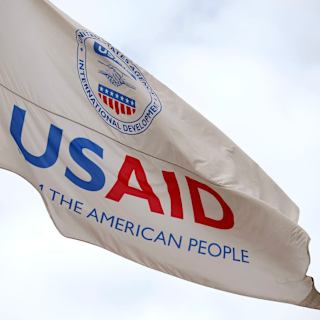- Legal Victory for Program Advocates
- Administration Defends Closure Plans
- Bipartisan Opposition Emerges
A federal judge dealt a decisive blow to the Trump administration's effort to dismantle Job Corps on Wednesday, issuing a preliminary injunction that prevents the Labor Department from shutting down the nation's largest residential career training program until a lawsuit challenging the closure is resolved.
U.S. District Judge Andrew Carter's ruling in Manhattan protects 99 Job Corps centers serving approximately 25,000 disadvantaged youth, including more than 4,500 students who were homeless before entering the program. The decision strengthens an earlier temporary restraining order Carter issued on June 4, when the administration first announced plans to close the centers by the end of June.

"Once Congress has passed legislation stating that a program like the Job Corps must exist, and set aside funding for that program, the DOL is not free to do as it pleases; it is required to enforce the law as intended by Congress," Carter wrote in his ruling12.
The National Job Corps Association, which filed the lawsuit, argued that only Congress can eliminate a program it created and funded. The organization's president, Donna Hay, had called the closure decision "based on a deeply flawed report" that would "needlessly endanger the futures and the lives of thousands and potentially millions more young Americans"34.
Labor Secretary Lori Chavez-DeRemer defended the administration's position at a House hearing last week, citing an average graduation rate of 38% and costs of $155,000 per student1. "This program is failing to deliver safe and successful outcomes our young people deserve," she said1.
The Labor Department announced the closure of contractor-operated centers in late May, saying the $1.7 billion program yielded poor results at high taxpayer cost23. The administration's budget proposal calls for eliminating Job Corps entirely3.
The closure has drawn criticism from both parties in Congress. Senate Appropriations Committee Chair Susan Collins, a Republican from Maine, called Job Corps centers "important pillars of support for some of our most disadvantaged young adults"1. Democratic Rep. Sanford Bishop of Georgia said eliminating the program would "shatter the dreams and aspirations of tens of thousands of promising students"2.
Founded in 1964 as part of President Lyndon Johnson's War on Poverty, Job Corps provides residential education, vocational training, meals and healthcare to youth aged 16-24 from disadvantaged backgrounds34. The program operates in all 50 states and has trained more than 3 million young people since its inception54.
"It gives them hope. It gives them a place. It gives them job training," said Jake Brock, president of a union representing Job Corps workers in New York6.



